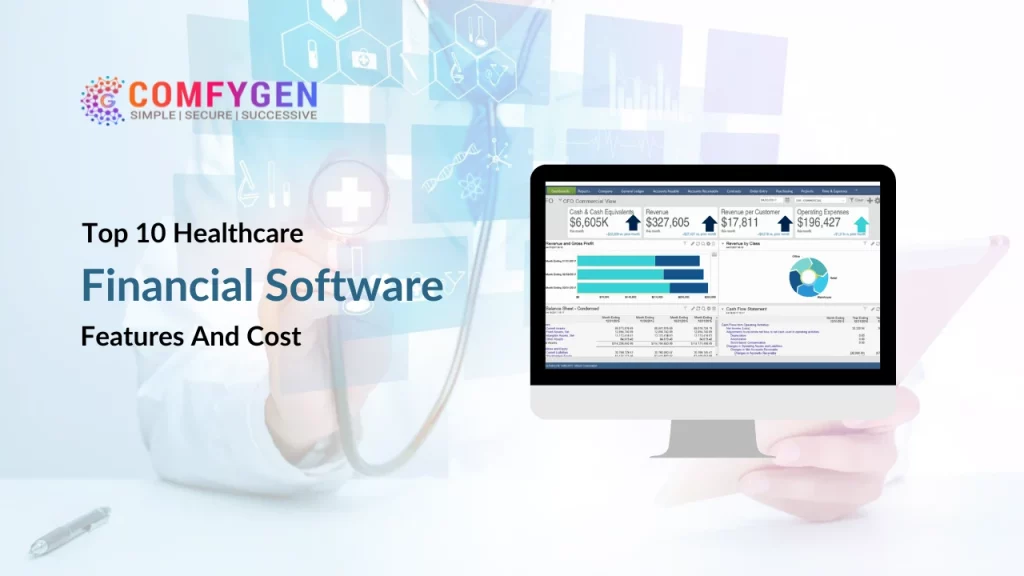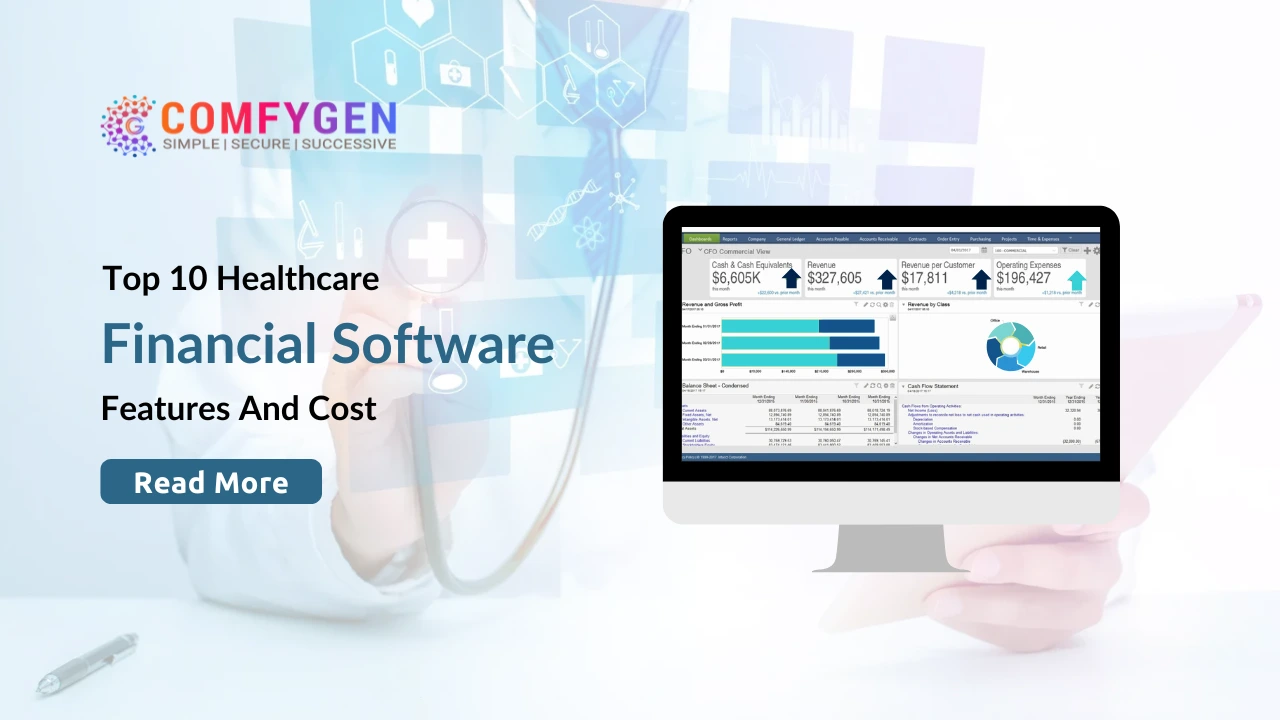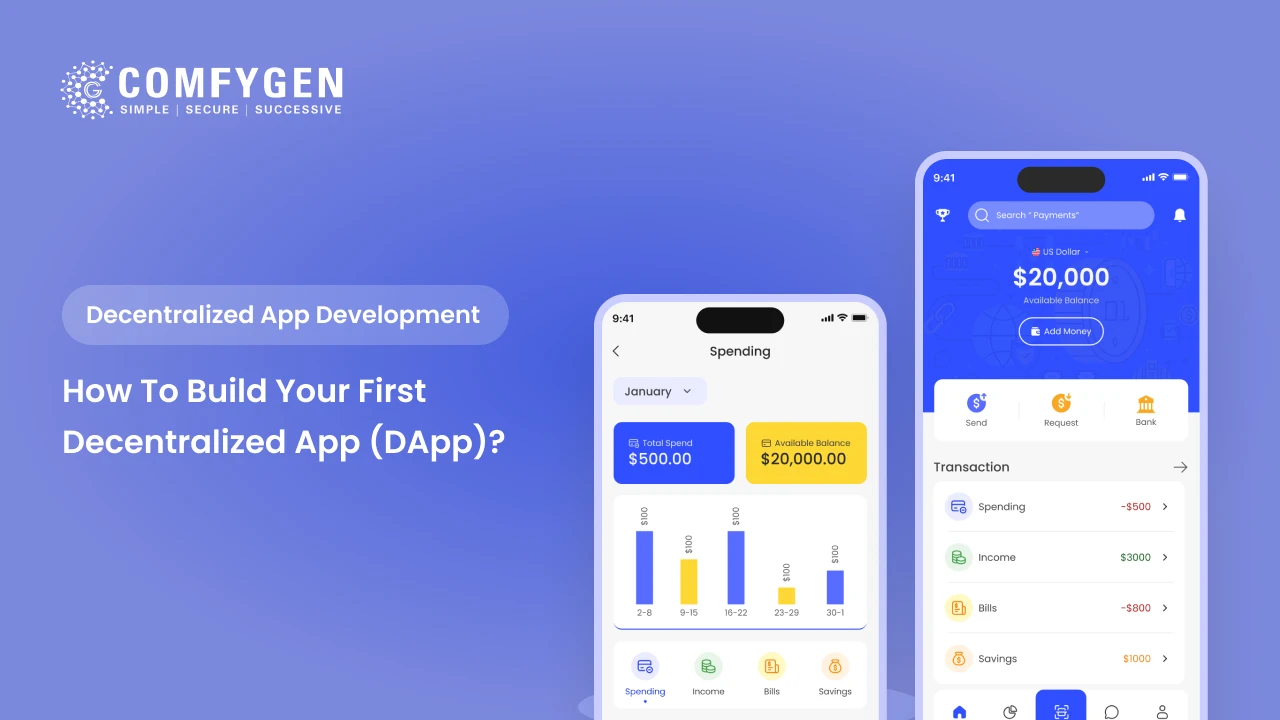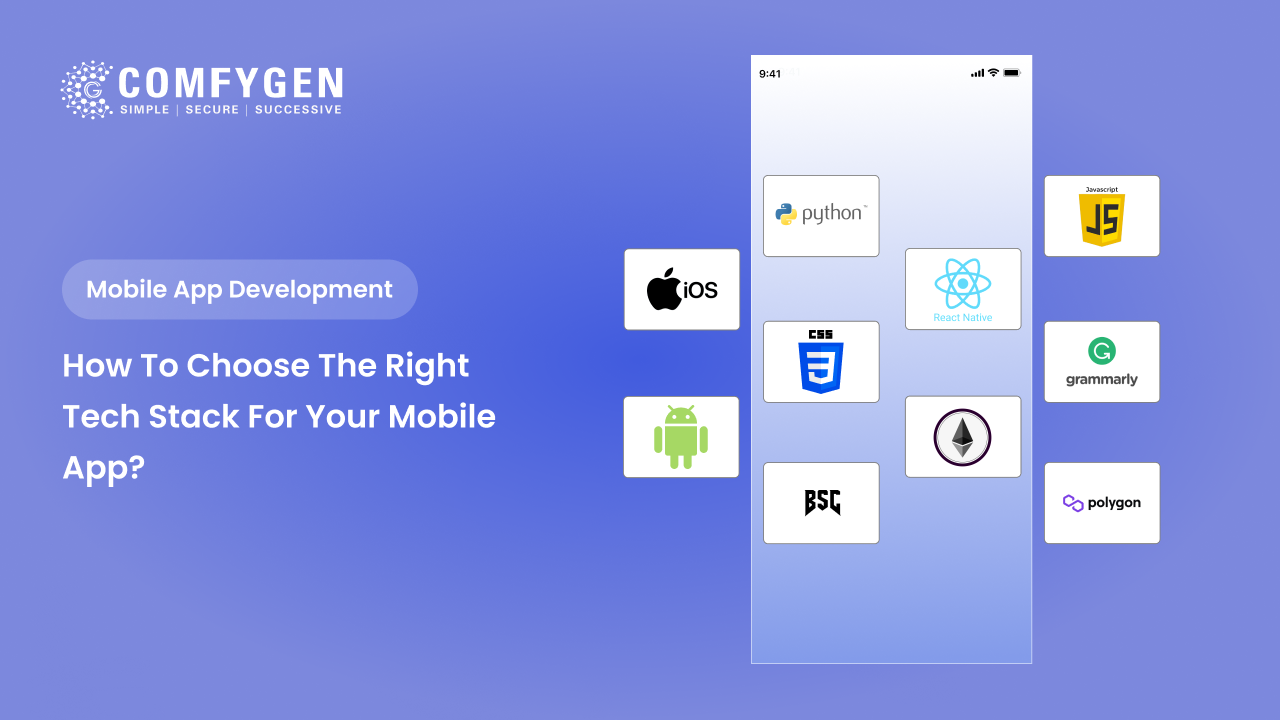Top 10 Healthcare Financial Software: Features, Cost To Develop

Wondering how healthcare organizations are turning their financial wheels smoothly?
Let us give you all the information you need to understand healthcare financial software. These software programs are heroes of the medical world. They quietly ensure that clinics and hospitals manage their money proficiently. Healthcare organizations need this software to keep everything on track without a snag, from billing to managing revenue cycles.
In this article, you will learn about the top 10 healthcare financial software, their features, the cost to develop them, and the latest trends. Whether you are a healthcare professional looking to manage your money with these powerful tools or just curious to learn about this technology, we have got you covered. Just read on!
What is Healthcare Financial Software?
Healthcare financial software is an important tool for managing the finances of healthcare organizations. This software has different modules and applications. It is designed to simplify the billing process, revenue management, and other finance operations of healthcare organizations.
Its development is important for improving the operations of healthcare centers while following rules. Healthcare financial software helps improve patient care through better finance management.
Types of Healthcare Financial Software
Medical financial software:
This type of healthcare software focuses on the medical practices’ needs, including billing process and revenue cycle management.
Health financial system software:
This system provides a solution for the finance management of healthcare organizations, including accounting and reporting.
Healthcare financial management software:
This software contains a wide range of applications that support managing finance in healthcare, including budgeting and financial analytics.
Features of Healthcare Financial Software:
Every healthcare financial software has many features, making it one of the most powerful tools out there. Let’s discuss some of its features.
- Revenue cycle management:
RCM automates the billing process and reduces errors. It also improves healthcare organizations’ cash flow. The revenue cycle management feature helps manage healthcare providers’ revenue cycles and ensures timely payments.
- Medical billing:
Medical financial software includes billing tools that help simplify the billing process, generate invoices and track payments. This feature is essential for maintaining financial records and ensuring that healthcare providers are accurately compensated.
- Financial reports:
Healthcare financial management software has a feature called a reporting tool that analyses financial performance. It helps healthcare providers track expenses and predict future revenues according to analysis. This feature assists in strategic decision-making and recognizes areas to improve healthcare finances.
- Cost management:
A cost management tool in health financial systems software helps monitor all operational expenses. It enables healthcare organizations to optimize their resource allocation and reduce unnecessary costs.
- Compliance management:
Medical financial software must follow numerous regulations, including HIPAA Compliance and other industry standards. This feature assists healthcare providers in ensuring that sensitive financial data is safe and protected. The compliance feature shows that the organization is committed to following legal requirements.
- Integration capabilities:
Healthcare financial software can integrate with other healthcare systems, such as practice management software. This feature is important for seamless data exchange and enhances operational efficiency.
Also Read: Top 10 Healthcare EMR Software: Features And Cost
Top 10 Healthcare Financial Software Solutions
1. Sage Intacct:
This healthcare enterprise software has HIPAA compliance, multi-entity financial consolidation, and real-time reporting features. Depending on its custom features, Sage Intacct’s development cost starts at around $50,000.
2. NetSuite ERP
NetSuite ERP has a real-time financial reporting feature with customizable dashboards and integration into other healthcare systems. Its development cost is around $100,000$, depending on its complexity.
3. QuickBooks:
This medical financial software has a payroll integration feature. It also helps track expenses and generate invoices. Healthcare financial management software costs are generally lower than custom solutions, starting from $30,000 for tailored versions.
4. Acumatica:
Acumatica is health financial systems software that assists in core accounting functionalities and mobile app access. It has a real-time dashboard feature.
Based on its features and complexity, Acumatica’s development costs range from $50,000 to $150,000.
5. SAP ERP for healthcare:
This medical financial software includes accounting tools and procurement models. It also has the feature of integrating patient data access. This healthcare software development solution costs $250,000. This high-end solution costs more due to its extensive customization needs.
6. Tebra:
Tebra automates practice management tasks and helps in patient engagement. This medical financial software development typically costs around $100,000.
7. CorroHealth:
Its features include intelligent technology for revenue capture and clinical development integrity. Due to its advanced features, this healthcare financial software development costs around $200,000.
8. WellSky:
WellSky is healthcare enterprise software with features of analytics-driven solutions for improved outcomes and provides cost efficiency. The cost to develop WellSky software varies widely but typically starts around 150,000 dollars.
9. Lumeris:
This healthcare software has advanced population health management tools in it. Lumeris also has care orchestration capabilities. Depending on its integration needs, its custom solution costs around $100,000 to $300,000.
10. Nym Health:
Nym Health software features automated RCM that accurately translates provider notes to billing codes. Due to its refined AI capabilities, software development costs start at $150,000.
Cost To Develop Healthcare Financial Software:
Developing healthcare financial software requires a significant investment. The cost is influenced by numerous factors, including features, complexity, integration abilities and software compliance requirements. Understanding these costs is necessary for healthcare organizations looking to enhance their financial management systems.
Let’s examine the typical costs of healthcare financial software development in the healthcare industry, the different types, and the factors contributing to these expenses.
Also Read: Top 10 Healthcare HR Software in India, Features, Cost To Develop
Factors influencing Healthcare Financial Software Development Cost:
- Complexity:
The cost of healthcare financial software development is highly influenced by the complexity of its features, including advanced analytics or incorporating AI. The more complex the software, the higher it will cost to develop.
- Scope:
A clearly defined project scope helps healthcare providers manage expenses efficiently.
- Regulatory compliance:
When software ensures compliance with regulations like HIPAA, it increases development costs due to the need for additional security and certifications.
- Integration:
Integrating medical financial software with other existing systems, like EHRs, requires more effort, which influences the time and budget for developing financial software for healthcare.
- User Experience:
Investing in a better user interface increases costs, but it also improves users’ satisfaction with healthcare financial software.
- Software quality assurance:
Every software requires quality assurance testing to ensure all functions are working correctly. This software quality testing adds up to the overall cost of the software.
- Maintenance and support:
Healthcare financial software requires ongoing maintenance and support after development is completed. This support is needed to keep the software up to date, which also increases the development cost.
Also Read: Best Medical Software For Doctors To Manage Clinic
Estimated Costs of a Healthcare Software Development
The following table outlines the estimated costs of developing numerous types of healthcare financial software.
| Type of Healthcare Software | Avg. Development Cost |
|---|---|
| Advanced Medical Billing Software | 100,000$ to 300,000$ |
| Basic Medical Billing Software | 30,000$ to 100,000$ |
| Revenue Cycle Management Software | 3 to 8% of annual revenue |
| Practice Management Software | 50,000$ to 200,000$ |
| Telemedicine Software | 40,000$ to 400,000$ |
| EHR Systems | 10,000$ to 250,000$ |
| Patient Engagement Tools | 20,000$ to 100,000$ |
| Health Tracking Apps | 30,000$ to 100,000$ |
Breakdown of Development Costs of Medical Financial Software:
To help you get a clear picture of how costs build up during the development process, here’s a breakdown of typical expenses involved:
| Category | Estimated Cost |
|---|---|
| Planning and Design | 2,000$ to 5,000$ |
| Development | 10,000$ to 30,000$ |
| Quality Assurance testing | 5,000$ to 8,000$ |
| Deployment | 3,000$ to 7,000$ |
| Security & Compliance | 5,000$ to 8,000$ |
| Maintenance | 5,000$ to 10,000$ |
| Marketing | 10,000$ to 15,000$ |
Latest Trends in Healthcare Financial Software Development:
- Artificial intelligence integration:
AI enhances predictive analysis in revenue cycle management, helping organizations anticipate cash flow issues. That’s why it is increasingly being used in modern healthcare financial systems.
- Cloud-based systems:
Cloud computing allows scalability and flexibility in managing healthcare finances. Cloud-based solutions are a great need for healthcare providers or organizations because they make it easier to access financial data from anywhere. They also provide data security.
- Interoperability:
The latest financial software for healthcare uses interoperability between different software. It assists healthcare providers in sharing financial data across multiple platforms for improved decision-making.
Also Read: Healthcare Accounting Software: List, Development, Features & Cost
Conclusion:
So there you have it! Healthcare financial software might not be an attractive topic to discuss, but it’s definitely an important one for making the healthcare system run smoothly.
Healthcare financial software handles everything in one place, from billing to ensuring compliance to optimizing revenue cycle tools and integrating with other existing systems. These systems are needed for organizations to run their finances accurately and efficiently. Technology is continuously growing, and we can expect more exciting developments in healthcare financial software in the future. Whether you are a decision-maker at a healthcare organization or someone interested in learning about this industry, this tool will provide information about the financial side of healthcare.

Mr. Saddam Husen, (CTO)
Mr. Saddam Husen, CTO at Comfygen, is a renowned Blockchain expert and IT consultant with extensive experience in blockchain development, crypto wallets, DeFi, ICOs, and smart contracts. Passionate about digital transformation, he helps businesses harness blockchain technology’s potential, driving innovation and enhancing IT infrastructure for global success.










